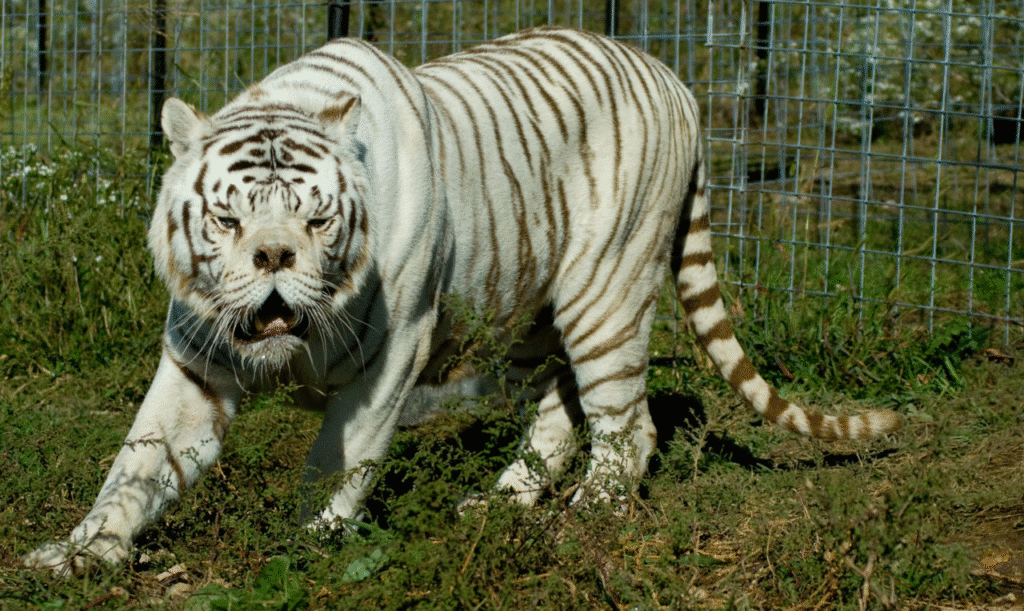Introduction
Animals can have Down syndrome — a question that sparks both curiosity and compassion among animal lovers, veterinarians, and scientists. People often wonder if their pets or wild animals can develop the same genetic condition known in humans. While this topic is surrounded by myths, misinformation, and even heartwarming stories, scientific research provides fascinating insights.
In this comprehensive guide, we’ll explore genetic disorders in animals, clarify whether Down syndrome truly occurs in them, and highlight conditions that mimic it. We’ll also cover heartwarming cases of animals who look different yet live fulfilling lives.
Read more about rare animal facts on this trending guide, discover health myths in pets from this expert article, and explore genetic research explained simply in this resource.
For related insights on animal biology check this informative piece, discover pet health conditions in this detailed guide, and explore science-backed explanations on this helpful post.

Table of Contents
What Is Down Syndrome in Humans?
Down syndrome in humans is a genetic condition caused by an extra chromosome 21 (trisomy 21). It affects physical appearance, cognitive development, and sometimes heart or health issues.
Key Points
- Down syndrome is caused by trisomy of chromosome 21, a uniquely human condition.
- Understanding it in humans helps clarify why animals cannot technically have Down syndrome.
Can Animals Truly Have Down Syndrome?
The short answer: No, animals cannot have Down syndrome in the same way humans do. This is because:
- Animals have different chromosome numbers than humans. For example, dogs have 39 pairs, cats 19, and monkeys 21.
- Down syndrome specifically refers to human chromosome 21 abnormalities.
However, animals can have chromosomal abnormalities that lead to physical or behavioral traits similar to those seen in Down syndrome.
Key Points
- Animals do not get trisomy 21 because their DNA differs.
- They can, however, suffer from genetic mutations that cause similar symptoms.
Genetic Disorders in Animals That Mimic Down Syndrome
Some genetic conditions in animals look like Down syndrome but are scientifically different. Examples include:
- Cats with Feline Dysautonomia (affects the nervous system).
- Dogs with Congenital Hypothyroidism (leading to facial differences, stunted growth).
- Primates with chromosomal duplications (observed in rare lab studies).
Key Points
- Similar genetic abnormalities exist in animals.
- These are often misidentified as Down syndrome by the public.
Famous Animal Cases That Sparked Curiosity
Several animals have gone viral due to their unique looks or behaviors:
- Kenny the Tiger – dubbed “the tiger with Down syndrome,” actually had a genetic deformity from inbreeding.
- Monty the Cat – famous on social media for facial differences, not Down syndrome but a chromosome defect.
- Otto the Dog – reported as “dog with Down syndrome,” actually had congenital issues.

Key Points
- Viral cases often spread myths about animals with Down syndrome.
- Scientific evidence shows they had other conditions, not trisomy 21.
Veterinary Perspectives and Scientific Evidence
Veterinarians and geneticists emphasize:
- Animals can have genetic abnormalities, but these are not the same as human Down syndrome.
- Mislabeling such animals can lead to misunderstanding their care needs.
External trusted resources:
- Wikipedia on Down Syndrome
- Forbes Health on Genetics
Key Points
- Veterinarians caution against using human terms for animal conditions.
- Accurate diagnosis helps provide better care and empathy.
Ethical Concerns and Animal Care
Labeling animals as having Down syndrome may be misleading, but what truly matters is:
- Providing compassionate care for animals with disabilities.
- Raising awareness about inbreeding and genetic health risks.
Key Points
- Focus should be on animal welfare, not labels.
- Ethical care ensures animals live happy, fulfilling lives.
Myths vs Facts About Animals and Down Syndrome
Myth: Animals can have the same Down syndrome as humans.
Fact: Only humans have trisomy 21.
Myth: Viral “Down syndrome animals” are proof.
Fact: These are different genetic disorders or deformities.
Key Points
- Myths spread fast through social media.
- Facts are backed by genetics and veterinary science.
YouTube Video
People Also Ask (PAA)
1. Do dogs have Down syndrome?
No, dogs do not have Down syndrome, but they can have genetic conditions that resemble it, such as hypothyroidism or pituitary dwarfism.
2. Can cats get Down syndrome?
Cats cannot have Down syndrome, but certain congenital issues may give them facial differences or behavioral challenges that resemble it.
3. What animals have similar genetic disorders?
Primates, cats, dogs, and even horses can suffer from genetic abnormalities, but these are species-specific, not human trisomy 21.
4. Why do people think animals have Down syndrome?
Because some animals develop unique facial features or behaviors, people assume it’s Down syndrome, but science shows otherwise.
FAQs About Animals and Down Syndrome
Q1. Can animals have Down syndrome like humans?
No, animals cannot have Down syndrome exactly, but they can have genetic issues with similar effects.
Q2. Why do some animals look like they have Down syndrome?
Facial deformities, thyroid problems, or chromosomal mutations can mimic Down syndrome traits.
Q3. Is Kenny the Tiger proof animals can have Down syndrome?
No, Kenny’s appearance was due to inbreeding, not trisomy 21.
Q4. Should we call animals with deformities “Down syndrome animals”?
No, it’s misleading. Correct terms help vets provide better care.
Q5. How can pet owners care for animals with genetic issues?
Through regular vet checkups, proper nutrition, and understanding their special needs.
Conclusion
So, can animals have Down syndrome? Scientifically, no. But they can have other genetic conditions that resemble it. Understanding this helps us move beyond myths, ensuring better care, empathy, and awareness for all animals.
Ultimately, what matters most is not whether an animal has a “label” but whether they receive love, respect, and proper medical attention.
For more deep insights into trending personalities, check out:



